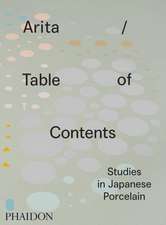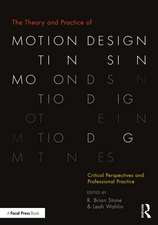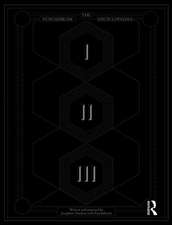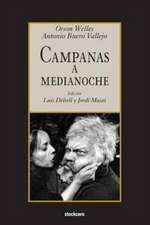Women, Rhetoric, and Drama in Early Modern Italy
Autor Alexandra Colleren Limba Engleză Paperback – 12 dec 2019
| Toate formatele și edițiile | Preț | Express |
|---|---|---|
| Paperback (1) | 261.95 lei 6-8 săpt. | |
| Taylor & Francis – 12 dec 2019 | 261.95 lei 6-8 săpt. | |
| Hardback (1) | 766.49 lei 6-8 săpt. | |
| Taylor & Francis – 23 iun 2017 | 766.49 lei 6-8 săpt. |
Preț: 261.95 lei
Preț vechi: 327.58 lei
-20% Nou
Puncte Express: 393
Preț estimativ în valută:
50.12€ • 52.33$ • 41.48£
50.12€ • 52.33$ • 41.48£
Carte tipărită la comandă
Livrare economică 05-19 aprilie
Preluare comenzi: 021 569.72.76
Specificații
ISBN-13: 9780367881818
ISBN-10: 0367881810
Pagini: 294
Dimensiuni: 156 x 234 x 18 mm
Greutate: 0.55 kg
Ediția:1
Editura: Taylor & Francis
Colecția Routledge
Locul publicării:Oxford, United Kingdom
ISBN-10: 0367881810
Pagini: 294
Dimensiuni: 156 x 234 x 18 mm
Greutate: 0.55 kg
Ediția:1
Editura: Taylor & Francis
Colecția Routledge
Locul publicării:Oxford, United Kingdom
Cuprins
CONTENTS
Acknowledgments
Introduction
Part I. Women as Protagonists in Male-Authored Drama: Comedy and Tragedy
Chapter 1: Fathers, Daughters, Crossdressing, and Names: Women, Rhetoric, and Education in Commedia Erudita
Coda to Chapter 1: Margherita Costa’s Li buffoni (1641): The First (Extant) Female-Authored Scripted Comedy
Chapter 2: Fashioning a Genealogy: The Rhetoric of Friendship and Female Virtue in Italian Renaissance Tragedy
Coda to Chapter 2: Valeria Miani’s Celinda (1611) Among Fin de Siècle Italian Tragedies
Part II. Women as Authors/ Women as Protagonists: Pastoral Tragicomedy
Chapter 3: Women Writers and the Canon: Satyr Scenes in Female-Authored Pastoral Drama
Chapter 4: Isabetta Coreglia’s Dori (1634): Writing Pastoral Drama Against the Backdrop of the Male Canon and an Incipient Female-Authored Tradition
Chapter 5: Isabetta Coreglia’s Erindo il fido (1650) and Isabella Andreini’s Mirtilla (1588): Using A Female-Authored Classic as Paradigm
Appendix: excerpts from Isabetta Coreglia’s Raccolta manuscript
Bibliography
Index
Acknowledgments
Introduction
Part I. Women as Protagonists in Male-Authored Drama: Comedy and Tragedy
Chapter 1: Fathers, Daughters, Crossdressing, and Names: Women, Rhetoric, and Education in Commedia Erudita
Coda to Chapter 1: Margherita Costa’s Li buffoni (1641): The First (Extant) Female-Authored Scripted Comedy
Chapter 2: Fashioning a Genealogy: The Rhetoric of Friendship and Female Virtue in Italian Renaissance Tragedy
Coda to Chapter 2: Valeria Miani’s Celinda (1611) Among Fin de Siècle Italian Tragedies
Part II. Women as Authors/ Women as Protagonists: Pastoral Tragicomedy
Chapter 3: Women Writers and the Canon: Satyr Scenes in Female-Authored Pastoral Drama
Chapter 4: Isabetta Coreglia’s Dori (1634): Writing Pastoral Drama Against the Backdrop of the Male Canon and an Incipient Female-Authored Tradition
Chapter 5: Isabetta Coreglia’s Erindo il fido (1650) and Isabella Andreini’s Mirtilla (1588): Using A Female-Authored Classic as Paradigm
Appendix: excerpts from Isabetta Coreglia’s Raccolta manuscript
Bibliography
Index
Notă biografică
Alexandra Coller is Associate Professor and Director of the Italian Program at Lehman College, City University of New York, USA.
Recenzii
"The intriguing glimpses into unknown plays, both male- and female-authored, plus the richly documented scholarship make this work very useful and likely to lead to many future explorations."
- Janet Levarie Smarr, University Of California, San Diego
- Janet Levarie Smarr, University Of California, San Diego
Descriere
Sixteenth-century Italy witnessed the rebirth of comedy, tragedy, and tragicomedy in the pastoral mode. Traditionally, we think of comedy and tragedy as remakes of ancient models, and tragicomedy alone as the invention of the moderns. Women, Rhetoric, and Drama in Early Modern Italy suggests that all three genres were new, if dramatists’ intriguin
















